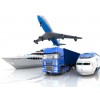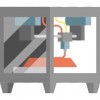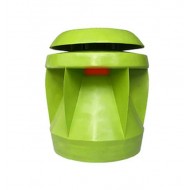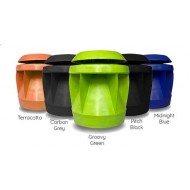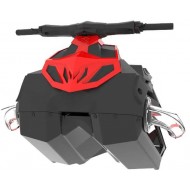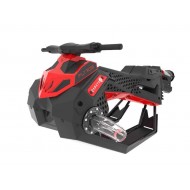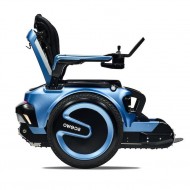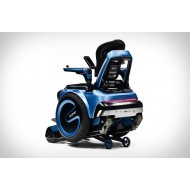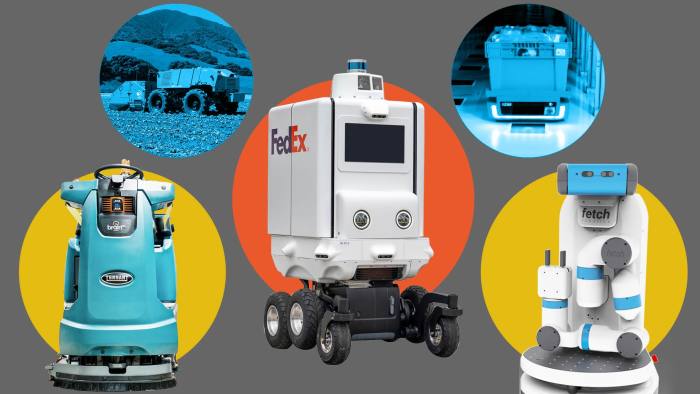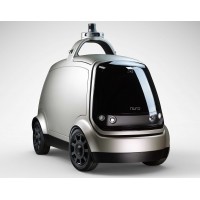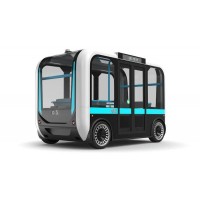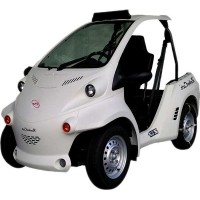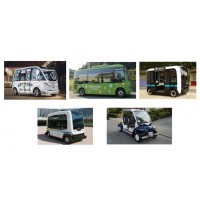Пять роботов для поставок продуктов питания
Пять роботов для поставок продуктов питания
Отрасль с дефицитом кадров обращается к автоматизации, пытаясь прокормить миллионы в условиях изоляции.
Роботы, помогающие кормить США: (слева направо) скребок для полов Brain Corp; Титан FarmWise; FedEx Roxo; Центр микропроизводства тканей; и робот Fetch Robotics © FT montage
Поскольку Covid-19 угрожает нарушить цепочку поставок продуктов питания в США, предприятиям приходится решать, как прокормить миллионы людей в условиях блокировки через неукомплектованные кадры цепочки поставок.
В результате растет спрос на робототехнические компании, чьи машины могут собирать, обрабатывать и доставлять продукты питания, что быстро ускоряет уже существующую тенденцию к автоматизации.
«Все говорят о волне автоматизации, волне искусственного интеллекта и этой четвертой промышленной революции, но эти тенденции только нарастали», - сказал Скотт Снайдер, консультант и партнер Heidrick and Struggles. «Теперь неожиданно бизнес-кейс, который раньше мог быть маргинальным, - размещение робота для сбора и упаковки в вашем подсобном помещении - стал намного более привлекательным».
Вот пять машин, которые привели к революции роботов в пищевой промышленности.
Очиститель пола Brain Corp
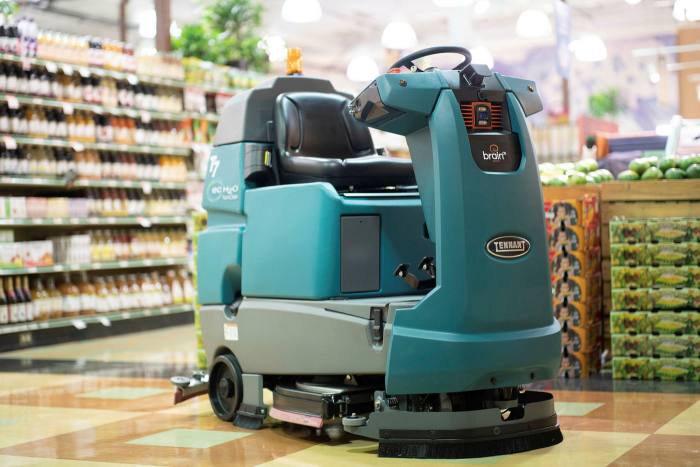
Роботы Brain Corp в совокупности ежедневно выполняют 8000 часов уборки © GARRETT RICHARDSON
В таких супермаркетах, как Walmart и Kroger, автономные машины для мытья полов каждую ночь перемещаются вверх и вниз по проходам, обеспечивая безупречный вид помещений.
С 2016 года компания Brain Corp, поддерживаемая SoftBank, оборудовала тысячи роботов своими датчиками и программным обеспечением, и теперь они вместе выполняют 8000 часов работы каждый день, сказал генеральный директор Евгений Ижикевич. В прошлом месяце компания привлекла 36 млн долларов в ответ на новый всплеск спроса, вызванный нехваткой рабочей силы в супермаркетах.
«Каждый день мы выделяем 8000 часов основным работникам, например, на другие дела... для точной очистки, [дезинфекции] ручек, пополнения запасов или просто необходимого перерыва », - сказал г-н Ижикевич. «Таким образом, роботы делают не всю уборку, а выполняют самую монотонную работу».
Сервис роботизированной прополки FarmWise
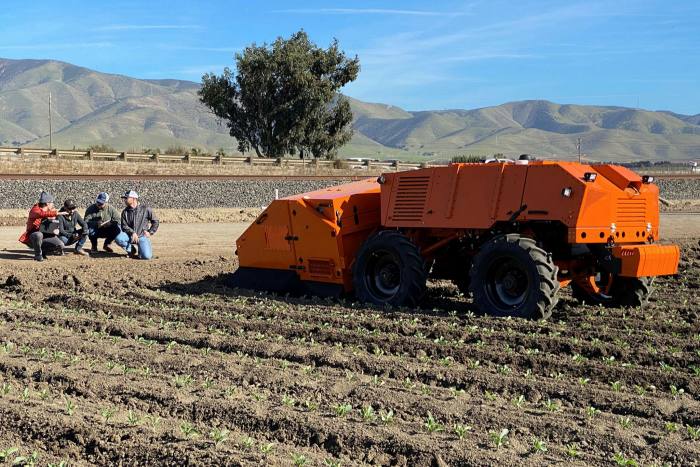
Titan оснащен искусственным интеллектом, который позволяет ему определять сорняки для удаления.
На фермах резко вырос спрос на автоматизированные решения для выращивания сельскохозяйственных культур. По словам исполнительного директора Себастьяна Бойера, в Калифорнии поддерживаемая венчурным капиталом компания FarmWise увидела «на порядок» больший аппетит к своей продукции после вспышки Covid-19.
«Агрибот» Titan от FarmWise - это гигантский оранжевый робот, оснащенный искусственным интеллектом, который позволяет ему определять сорняки для удаления, помогая фермерам повысить свою эффективность и получить больше урожая на своей земле.
FarmWise, команда из 50 человек, в настоящее время имеет семь работающих роботов. По словам г-на Бойера, 20 процентов всей полевой рабочей силы в южной Калифорнии приходится на временных рабочих из Мексики. Поскольку граница фактически закрыта на фоне карантина из-за коронавируса, фермеры ищут альтернативные решения в сфере труда.
Бот SameDay от FedEx, также известный как Roxo
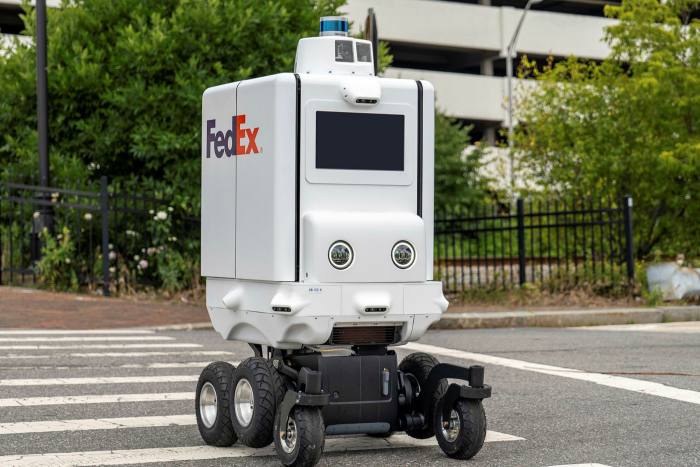
Roxo может подниматься по лестнице и оставлять посылки у вас дома
Roxo, «SameDay Bot» от FedEx, - это курьер последней мили, который может подниматься по лестнице и оставлять посылки у вас дома. Текущие прототипы имеют некоторые изгибы, такие как путаница в тени, но к концу этого года ожидается, что они будут доставлены в офисы FedEx Office.
За последние несколько месяцев FedEx расширила список партнеров, желающих воспользоваться ее услугами, и теперь он включает McDonald's, Walmart, CVS, AutoZone и Target. В совокупности у ее клиентов около 80 000 точек в США, что потенциально дает FedEx огромную экономию на масштабе, позволяющую сделать доставку роботов основным направлением в ближайшие 18–36 месяцев.
«Мы можем довести экономику до такой степени, что имеет смысл иметь парк ботов, выстроенных в очередь за пределами магазина или ресторана, наготове для удовлетворения спроса», - сказал Брайан Филипс, исполнительный директор FedEx Office.
Складские роботы Fetch Robotics
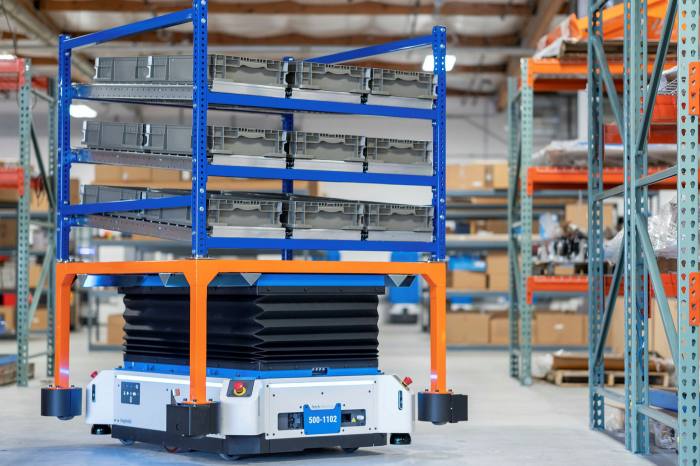
Складские роботы перевозят товары по объектам и могут нести полезную нагрузку до 1500 кг © Дэйв Лин
Компания Fetch Robotics из Сан-Хосе создает складских роботов, которые перевозят товары по объектам. Роботы, уже работающие в 22 странах для более чем 100 клиентов, представлены в трех размерах и могут нести полезную нагрузку от 100 до 1500 кг.
Исполнительный директор Мелони Уайз заявила, что за последние два месяца Fetch переключил свое внимание на основных поставщиков услуг, помогая компаниям придерживаться принципов социального дистанцирования. Она добавила, что спрос на дезинфицирующих роботов резко возрос, поэтому теперь компания оснащает свои машины такими инструментами, как ультрафиолетовое излучение для уничтожения микробов.
«Что делает нас уникальными, так это то, что наши роботы развернуты в облачной системе», - сказала она. «Таким образом, мы можем отслеживать всех [их] в режиме реального времени в глобальном масштабе, что значительно упрощает поддержку и развертывание... Если вы хотите купить робота сегодня, вы можете настроить и запустить его менее чем за восемь часов».
Центры микропроизводства тканей
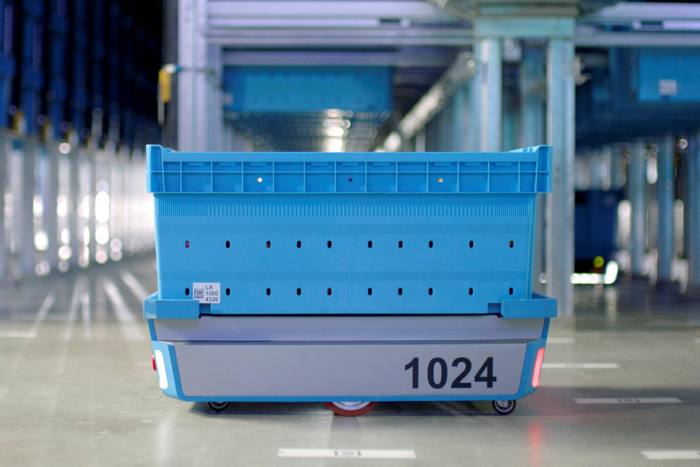
Автоматизированные центры микро-выполнения Fabric позволяют бакалейщикам конкурировать с Amazon по доставке в тот же день
Fabric создает автоматизированные центры микро-выполнения, которые стремятся сделать продуктовых магазинов конкурентоспособными с возможностями Amazon по доставке в тот же день. Операции в его флагманском центре в Израиле увеличились на 200 процентов в период с марта по апрель, и в настоящее время он находится в процессе строительства своего первого центра в США в Бруклине, Нью-Йорк.
По данным IbisWorld, до пандемии на продуктовые онлайн-магазины приходилось менее 5% продуктового рынка Америки стоимостью 682 миллиарда долларов. Ожидается, что в этом году эта доля превысит 10 процентов.
«То, что бакалейщики увидели за последние четыре недели, они ожидали увидеть в следующие четыре года», - сказал Эльрам Горен, исполнительный директор Fabric.
Бакалейные магазины не спешат адаптироваться к электронным продуктовым магазинам, потому что потенциальные клиенты ставят их в ловушку-22: предлагают онлайн-заказы и теряют деньги на каждой продаже или отказываются предлагать услугу и видят, как часть вашего бизнеса отходит от онлайн-конкурентов.
Но, приближая товарные запасы к покупателям и используя роботов для сбора и упаковки товаров, Горен утверждал, что он может изменить уравнение и навсегда изменить то, как потребители покупают продукты, даже после окончания пандемии.
«Я верю, что многое из этого останется», - сказал он. «Covid изменит эту отрасль - или, по крайней мере, ускорит ее на несколько лет вперед».
Сопутствующие Товары
Беспилотный автомобиль Nuro
Беспилотный электро автомобиль, предназначенный для перевозки местных грузов.Наш автомобиль - это полностью автономный внедорожник, предназначенный для быстрой, безопасной и доступной перевозки грузов..
$0.00 Без НДС: $0.00
Беспилотный электробус Olli
Микроавтобус Olli, построенный в Аризоне Local Motors, он имеет уникальную особенность: сборка каждого транспортного средства начинается в течение одного дня.Причины такой оптимизации кроются в с..
$0.00 Без НДС: $0.00
Беспилотный миникар RoboCar MV 2
RoboCar® MV2 основан на «COMS», сверхкомпактном электромобиле, производимом Toyota Auto Body. Это экспериментальный сверхкомпактный электромобиль, который может управлять рулевым управлением, акселера..
$74000.00 Без НДС: $74000.00
Похожие статьи
5 компаний, работающих над беспилотными шаттлами и автобусами
В качестве альтернативы созданию полностью автономных легковых автомобилей ряд частных компаний работают над созданием самоуправляемых электрических шаттлов и автобусов.Динамика развития автомобильных..
